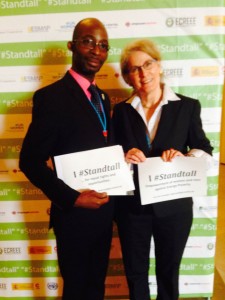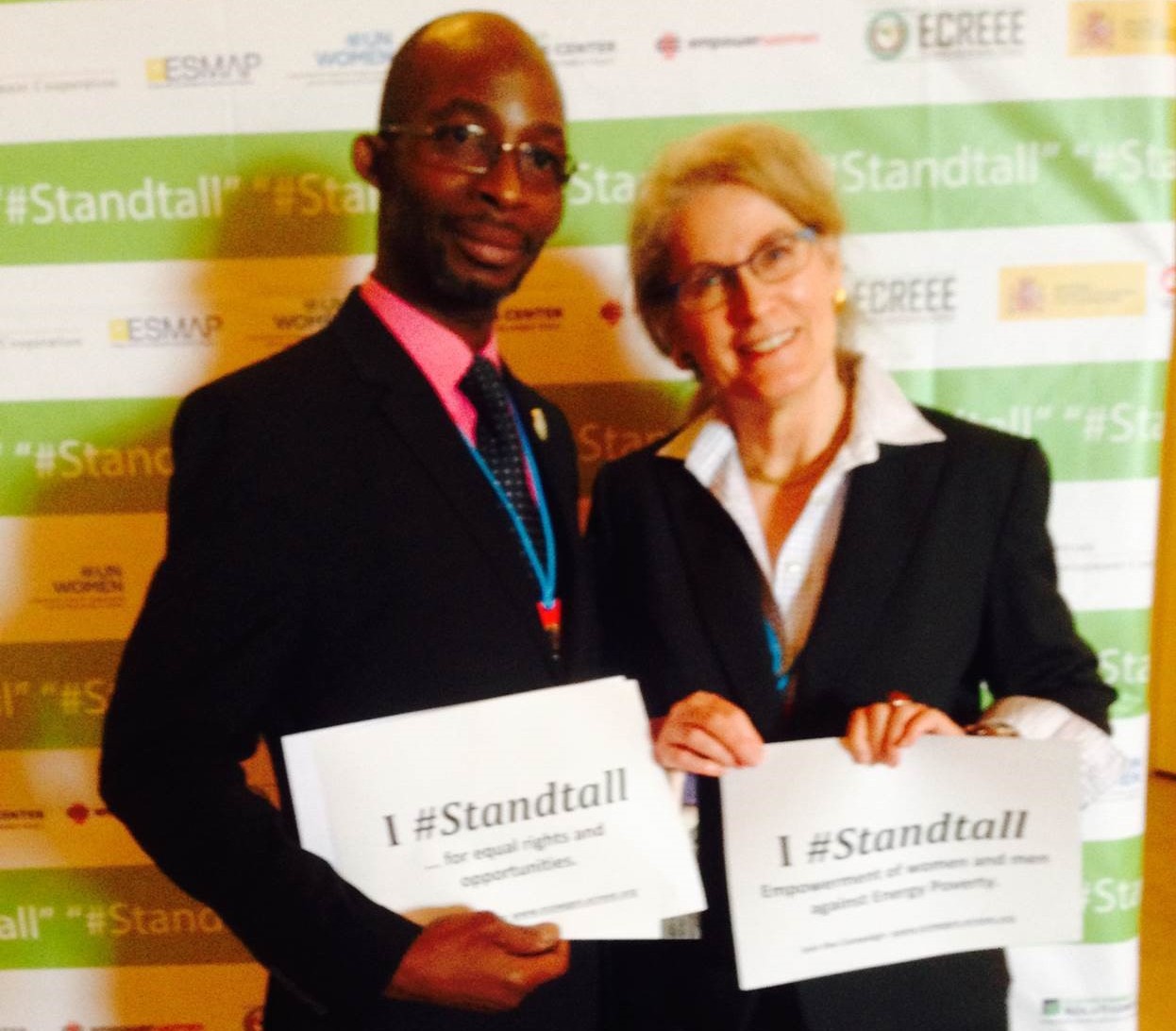Elizabeth Cecelski – 21 June 2015, Vienna, Austria
From 18 – 20 June, UNIDO organized the Vienna Energy Forum 2015, together with SE4ALL. ENERGIA co-hosted a networking event and a side event on gender, energy and inclusive development. As one of ENERGIA’s technical advisor I attended this inspiring forum.
It was good to see old friends and also make some new contacts. ESMAP was on the side event panel, and I learned about an interesting new report Toward Gender-Informed Energy Subsidy Reform in Europe and Central Asia.
Another Dutch organization, the Foundation for Rural Energy Services (FRES), was one that I had not met before. They have established five small-scale commercial electricity companies in Africa and include gender monitoring of employment. Very interesting!
ENERGIA brought three challenges to the audience at the side event:
- Gender has been taken up by SE4All, with ENERGIA and SEWA, but the Global Tracking Framework 2015 report shows cooking energy access is falling behind. How can we keep up the momentum on meeting women’s energy needs, both electricity and cooking?
- The second challenge is to make sure we measure not just energy access, but whether there is really energy access for both women and men – bringing gender indicators to the SE4All national action plans and to energy projects and policies.
- The third challenge is to move SE4All beyond seeing women only as beneficiaries or energy access, or victims of indoor air pollution, to seeing women as agents in the provision of sustainable energy and climate-change technologies. ENERGIA’s Women’s Economic Empowerment initiative aims to empower 3,000 women entrepreneurs in the delivery of energy services, reaching over 2 million consumers in Asia and Africa.
UNIDO has a new policy on gender equality and empowerment of women. It has launched a gender mainstreaming effort in its own Energy Branch and several projects with women in renewable energy in Africa.
Although the organisers made some efforts mainstreaming gender into the forum, still most of the plenary sessions were all-male or with the participation of only one woman, and none of the main session presentations included gender issues.
So, even though some progress is being made in bringing gender into the energy field, there is still a lot of work to do!







